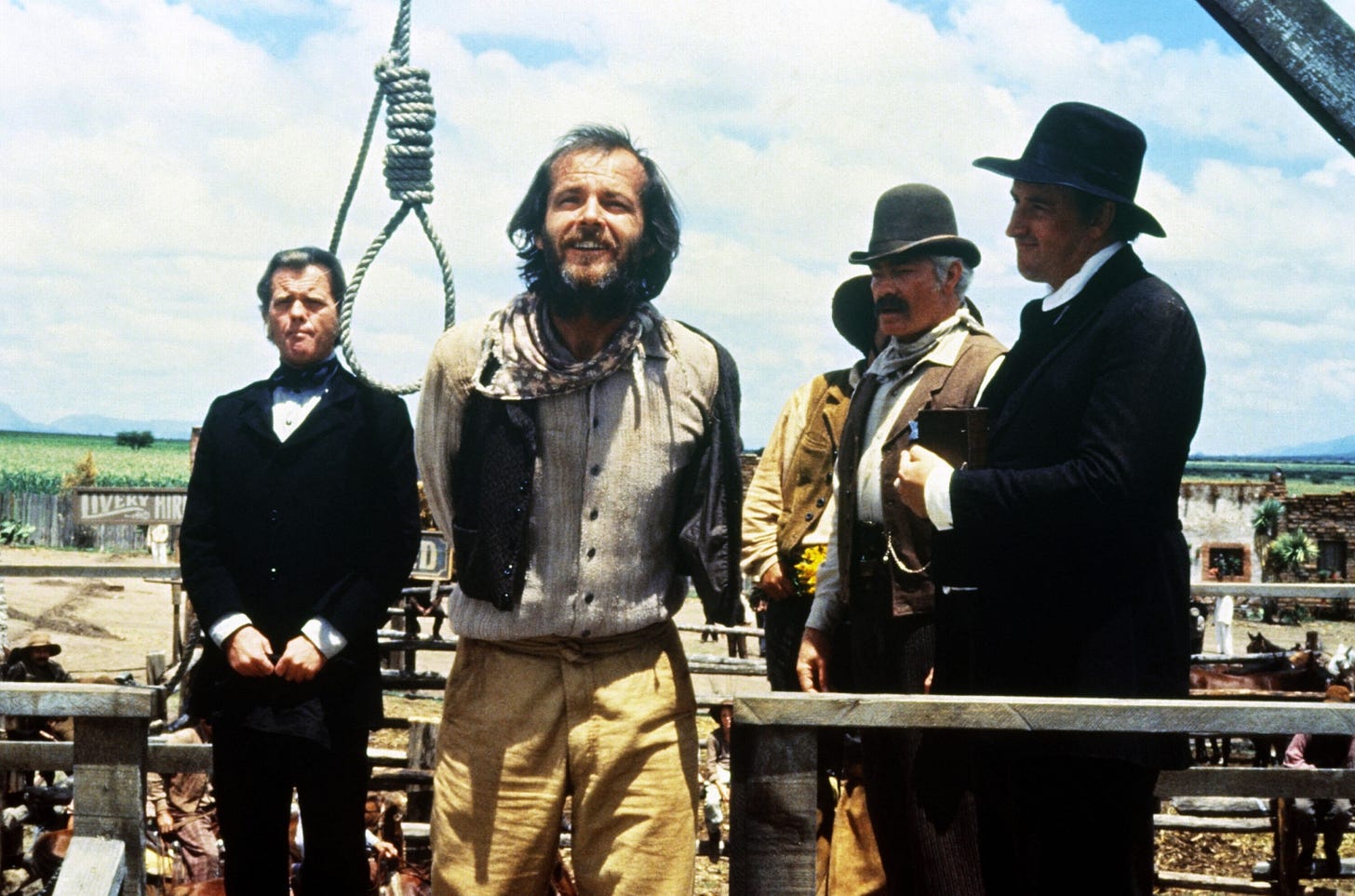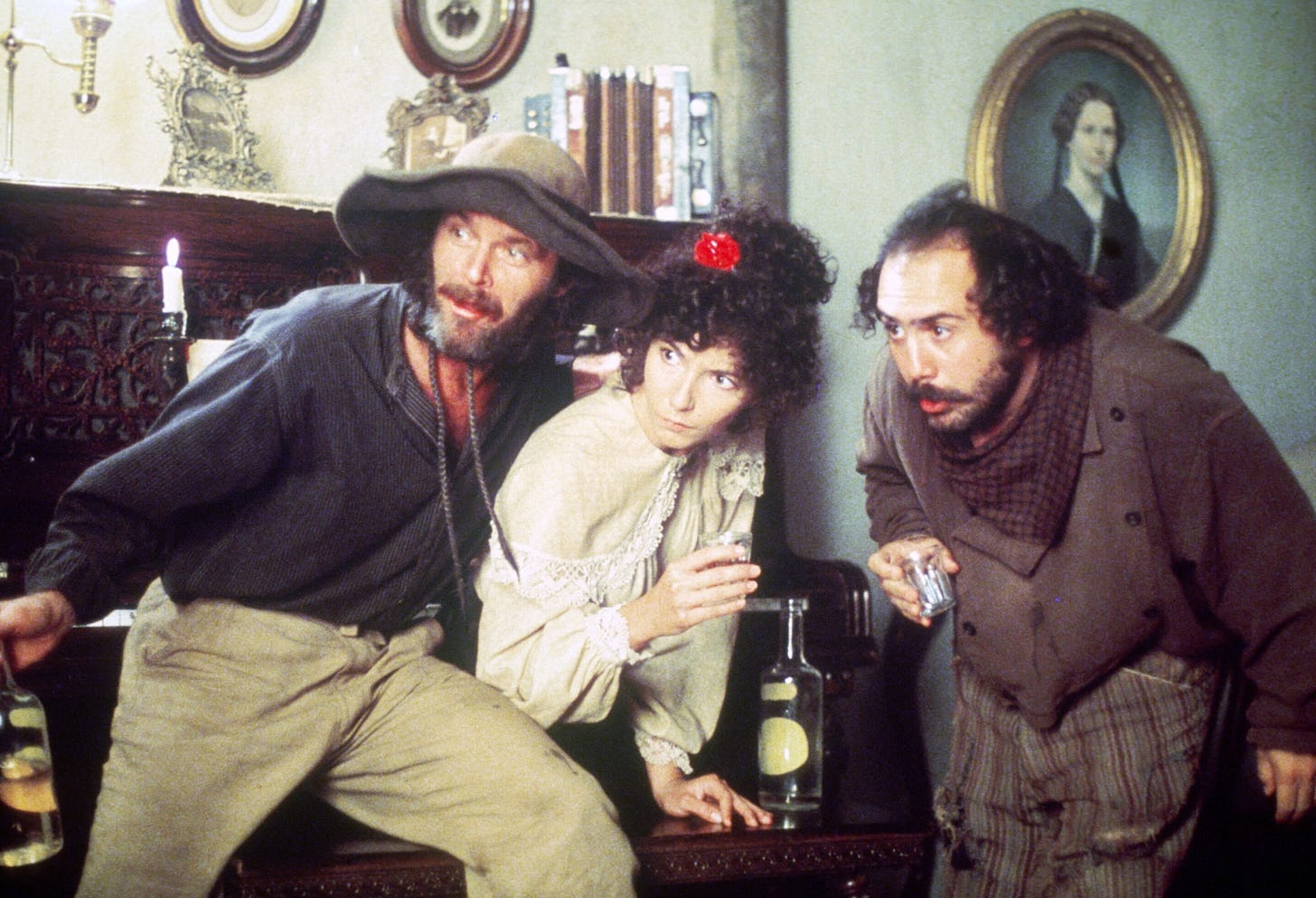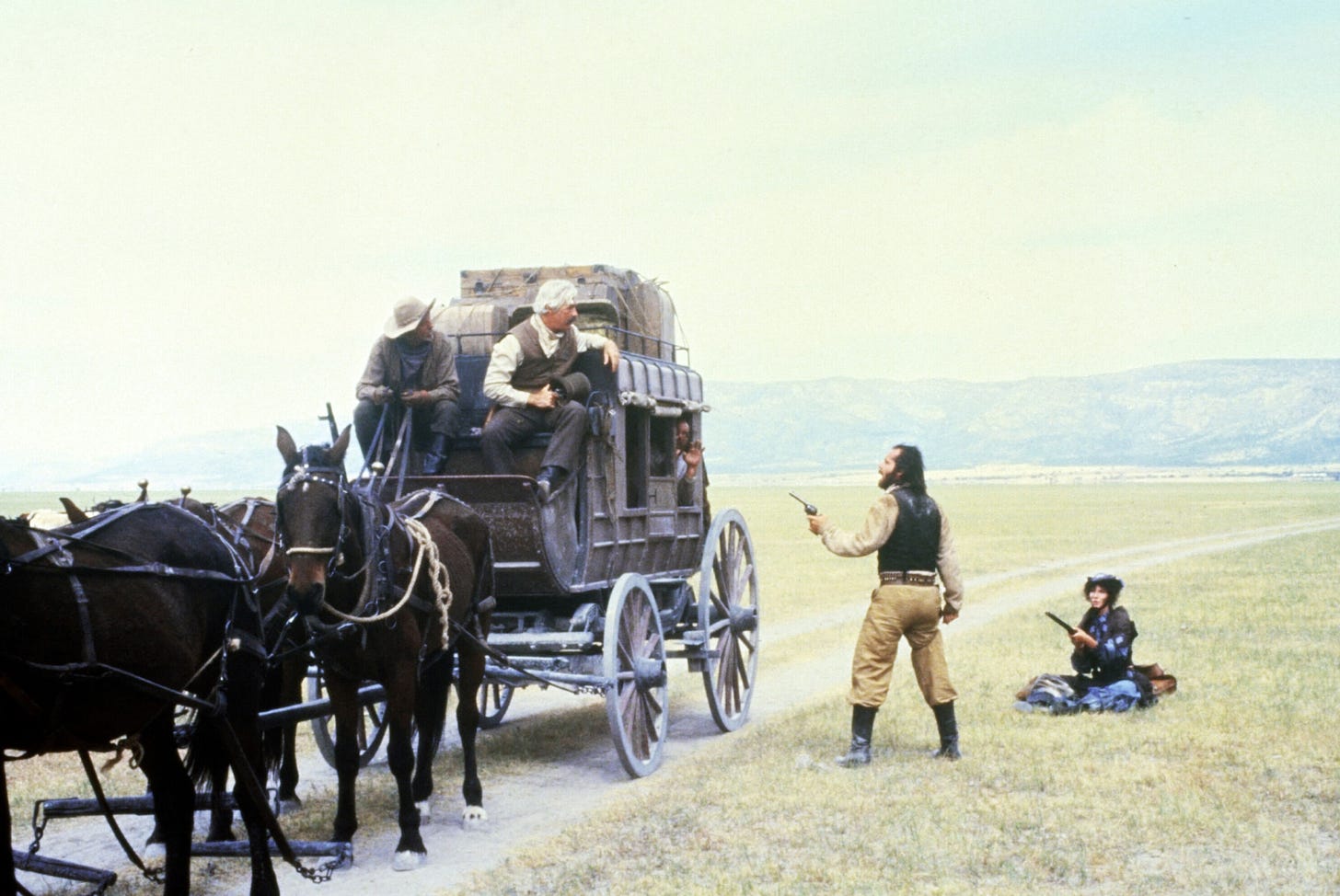Spoilers for Goin’ South (1978). Trigger warnings for brief discussions of sexual assault.
Jack Nicholson’s second effort as a director, following 1971’s Drive, He Said, is an odd film. A comedy western, with himself in the lead role, it flounders significantly due to the lack of any real antagonist. Christopher Lloyd puts in a good performance as the jealous Towfield, while John Belushi and Danny DeVito are massively underused as Hector and Hog, respectively.
It puts Nicolson’s Henry Moon in the odd position of being both the protagonist and antagonist of the same picture; a character forced to consistently hamper his plans, for no other reason than broad comedy. After being caught and sentenced to hang, Moon finds himself at the mercy of the town, which, after the civil war, has implemented a rule in which criminals convicted of anything less than murder can be saved from the gallows and taken into the care of a local woman.
Moon is married to Julia Tate (Mary Steenburgen). Steenburgen was unfairly lumbered with much of the criticism when the film was released. In her film debut, she’s expected to add depth to a two-dimensional character and match a scenery-chewing Nicolson scene for scene. A task that becomes even more taxing when they’re both part of a tired ‘enemies to lovers’ storyline.
Tate has her own reasons for marrying Moon, seeing him as an ideal worker for a secret gold mine under her house. From butting heads, they quickly come to depend on each other. Yet until the end of the film, Moon is constantly looking for a way to escape.
If the storyline rattles through at pace, there are hints of a more interesting plot, especially with Tate. While often portrayed as naïve and prim, there are hints of the intelligent woman she is meant to be. This is most obvious when a group of locals descend on the house: three women and three criminals, all married off the same way that Moon and Tate were.
Moon laughs and jokes with the ex-cons while Tate and the other women move into the kitchen. The women are quick to move the conversation towards relationships and the problems that occur. As this is a comedy, the relationship issues are primarily about sex. How often men want it, whether they are good at it, and how a woman should just lie back when a man wants intercourse.
While this is period accurate, to a point, and representative of the time that film was made, it is also one of the few points where the character of Tate is allowed to stand apart. The central conceit of the film implies a power dynamic where the woman has control; after all, the man is a felon and must live by a series of rules or else risk going back to the gallows. This butts up against the standard dynamic of the period, where the woman would have less autonomy.
Yet we see that many of the women of the town have allowed the dynamic to slip back a little. The men act henpecked when speaking to Moon, but the story told to Tate is of women giving up their autonomy because they are married.
Here, Tate stands out, and Steenburgen is excellent in the scene. She maintains a coyness, never giving away that she is resisting Moon’s advances or putting him to work in exchange for his freedom. Had the film utilised this part of the character more, it’s unlikely that Steenburgen would have received the same criticisms.
Instead, the script forces the switch from enemies to lovers. First, it puts the pair in danger, with a vicious hailstorm and a cave-in in the mine; then, in its most egregious use of the tropes, Moon ties Tate up and assaults her before trying to escape, only to be forgiven upon his return.
It misunderstands Tate’s need for Moon. Instead of having their feelings soften after they have completed their goal of discovering gold, allowing the friction between the pair to build, it falls too quickly into the idea that Moon is somehow irresistible – something Nicolson no doubt enjoyed playing.
Once the pair have hooked up, there’s little trouble the film can throw at them to convince the audience that the ending will be anything but predictable.
Director: Jack Nicholson
Writers: John Herman Shaner, Al Ramrus, Charles Shyer, Alan Mandel
Starring: Jack Nicholson, Mary Steenburgen, Christopher Lloyd, John Belushi, Richard Bradford, Danny DeVito, Veronica Cartwright









